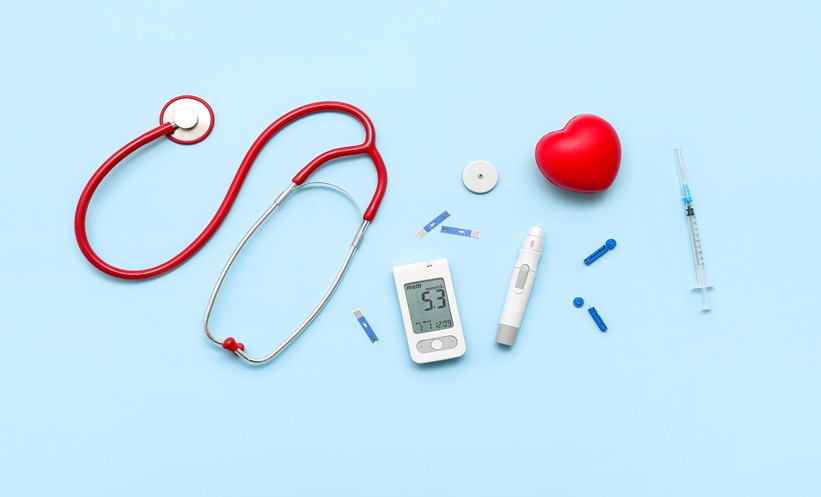Introduction
Diabetes and heart disease are two of the most common health conditions worldwide, and research shows that they are closely linked. People with diabetes are at a much higher risk of developing cardiovascular problems, including heart attack, stroke, and high blood pressure. Understanding the connection between diabetes and heart disease can help individuals take preventive steps and live a healthier life.
The Link Between Diabetes and Heart Disease
Diabetes occurs when the body cannot properly use or produce insulin, leading to high blood sugar levels. Over time, this excess sugar damages blood vessels and the nerves that control the heart. This makes people with diabetes two to four times more likely to develop heart disease than those without diabetes.
How High Blood Sugar Affects the Heart
When blood sugar remains consistently high:
- It damages the lining of blood vessels, causing them to harden and narrow (atherosclerosis).
- It increases cholesterol levels, especially LDL (“bad” cholesterol).
- It raises blood pressure, putting more strain on the heart.
- It leads to inflammation, which makes heart disease progress faster.
Risk Factors Shared by Diabetes and Heart Disease
Several factors increase the risk of both conditions, including:
- Obesity and lack of physical activity
- High cholesterol
- High blood pressure
- Unhealthy diet (processed foods, excess sugar, and salt)
- Smoking and excessive alcohol consumption
- Stress and poor sleep patterns
Because these risk factors overlap, managing them is essential for both diabetes control and heart protection.
Common Heart Problems in People with Diabetes
People with diabetes are more likely to experience:
- Coronary artery disease – narrowing of blood vessels supplying the heart
- Heart attack – caused by blocked arteries
- Stroke – reduced blood flow to the brain
- Heart failure – when the heart cannot pump blood effectively
- Peripheral artery disease (PAD) – reduced blood flow to arms and legs
Prevention and Management Strategies
1. Maintain Healthy Blood Sugar Levels
Monitoring and controlling blood sugar is the most important step. This can be done through medication, insulin therapy, diet, and exercise.
2. Eat a Heart-Healthy Diet
- Choose whole grains, fruits, vegetables, and lean proteins.
- Limit added sugars, fried foods, and processed snacks.
- Include healthy fats like nuts, seeds, olive oil, and fatty fish.
3. Stay Active
Regular physical activity improves insulin sensitivity, lowers blood pressure, and strengthens the heart. Aim for 150 minutes of moderate exercise per week.
4. Quit Smoking and Limit Alcohol
Smoking damages blood vessels, while alcohol can cause blood sugar spikes and raise blood pressure.
5. Regular Health Checkups
Monitor blood pressure, cholesterol, and HbA1c (average blood sugar levels). Early detection of problems helps prevent serious complications.
Conclusion
Diabetes and heart disease are deeply connected, with high blood sugar levels causing long-term damage to blood vessels and the cardiovascular system. However, the good news is that with proper management — including a balanced diet, regular exercise, healthy weight maintenance, and medical care — people with diabetes can significantly lower their risk of heart disease. By understanding this connection and making proactive lifestyle changes, individuals can protect both their heart and overall health.

